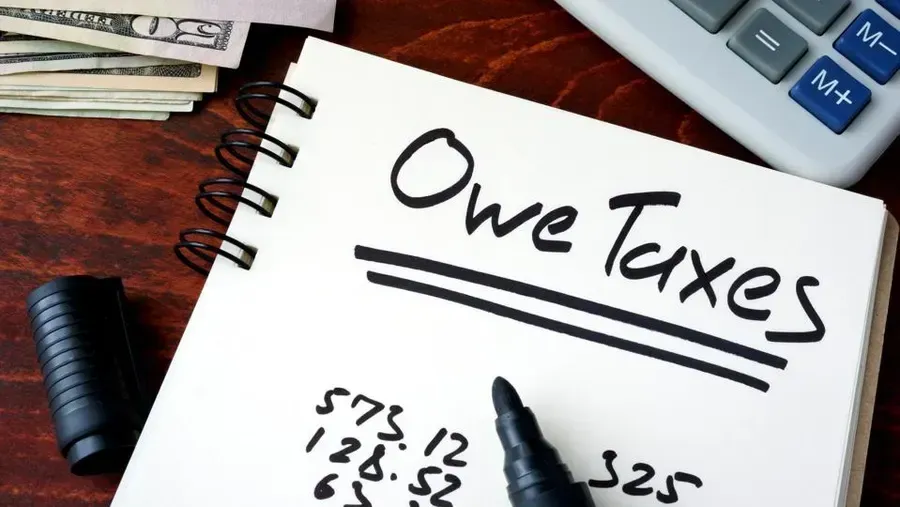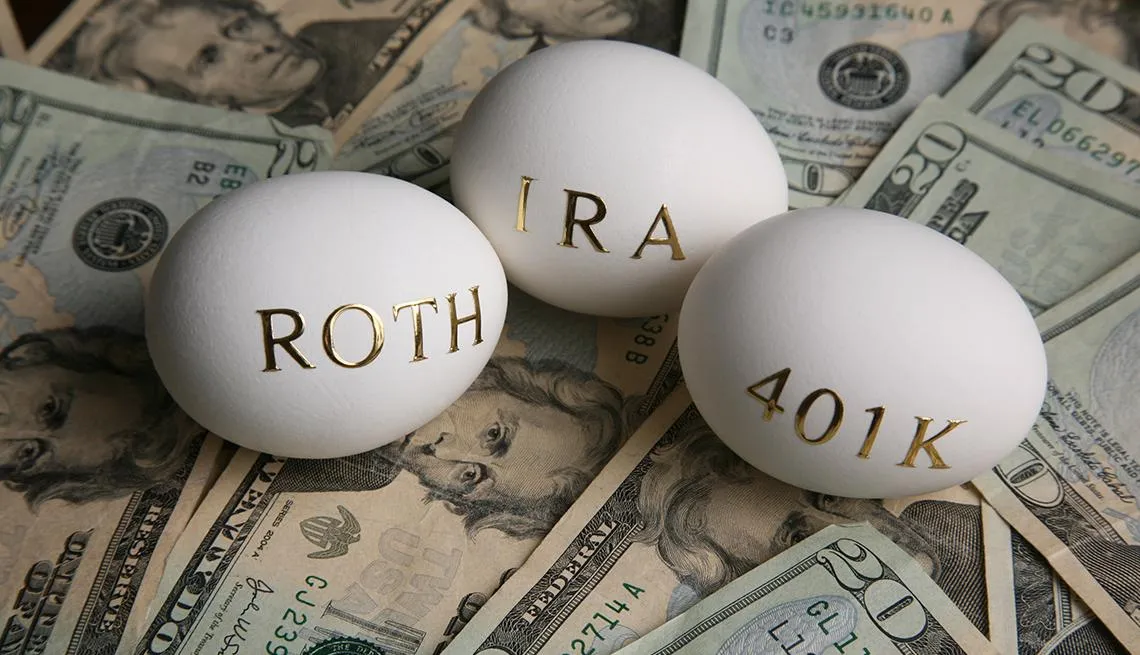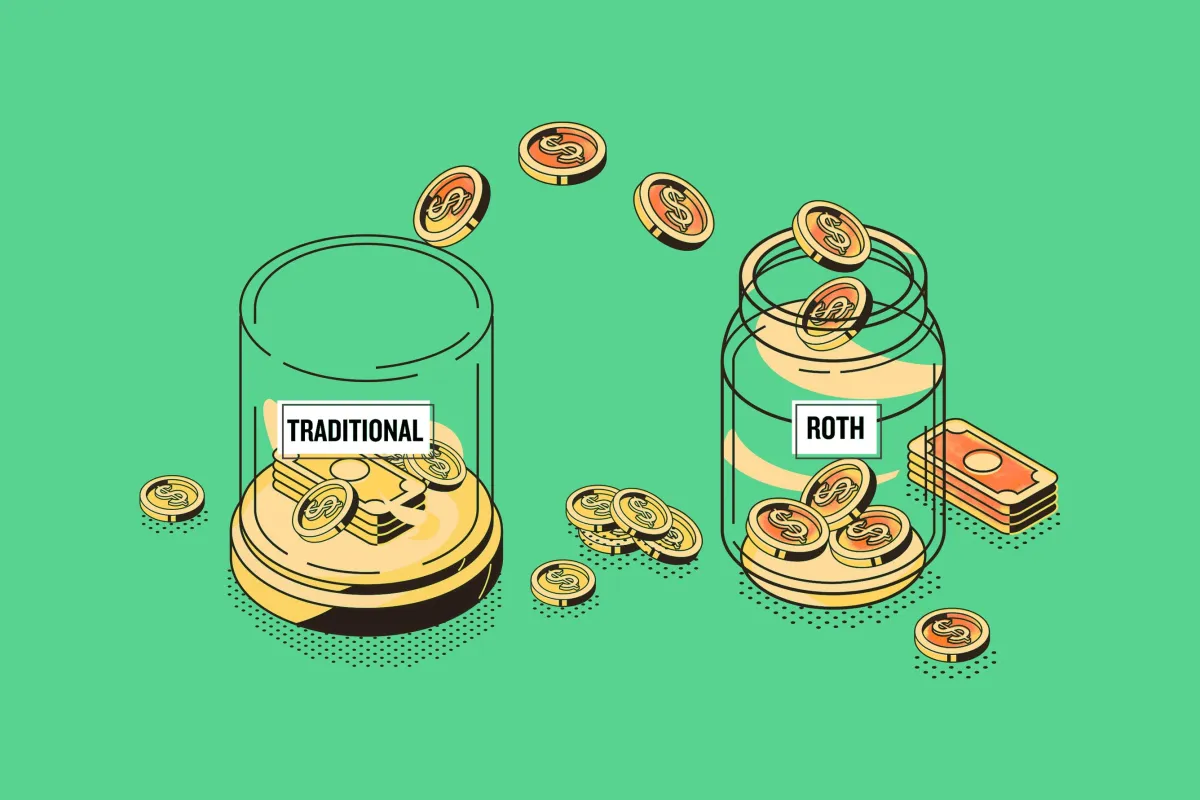Taxes and Your Retirement
It's been said that there are only 2 guarantees in life: death and taxes. From when you receive your very first paycheck until you cash your last, income taxes will always be a significant part of your financial outlook. However, depending of how you save for retirement, you will continue to pay taxes even when you withdraw funds from your nest egg, which only increases your chances of outliving your money. However, there are vehicles and strategies you can leverage that can allow you to have a tax-free retirement.
Why Worry About Taxes In Retirement?

There are many that are not concerned about prospect of paying taxes in retirement. After all, they have been paying taxes all their lives and it hasn't seemed to slow them down, so they reason if they save enough money for retirement, they will be fine. However, there are various reasons one should consider decreasing their tax liability in retirement as much as possible.
In retirement, there will always be a risk of running out of money, and while growing wealth before and during retirement are critical to mitigating this risk, so is limiting the impact any process that shrinks your savings or purchasing power. Once you've stopped working, your savings will need to last on average 20 to 25 years, and giving a large percentage of those dollars to the IRS every year (i.e. 20% or more) could mean going back to work in your golden years just to make ends meet.
In addition, many of the tax deductions you have during the working years are no longer present in retirement to help decrease your tax bill. There are no more deductions for contributing to a retirement fund since you're no longer working. The house is paid off, so there is no deduction for paying mortgage interest. The children are grown up (and hopefully out of the house!), so there are no more dependent credits. And when living off limited funds, donating large amounts of money to charity to write off may not be as feasible compared to when you were working.
By contrast, imagine the impact to your finances if you were no longer responsible for paying income taxes for the rest of your life. If you have ever looked at your paystub, you couldn't deny that all of the money that is currently going to the IRS would make a considerable difference in your life if it were to land in your bank account instead. While this may never be a reality during your working years, by using the right financial strategies and vehicles, you can work towards this being a reality in your retirement. Even having just a portion of your retirement funds free from taxes would strengthen your financial footing during that time and give you much needed flexibility, especially if taxes increase in the future as expected by most financial experts.
Isn't It Better to Take the Tax Breaks Now?
Outside of a simple lack of concern for taxation in retirement, a reasonable argument for paying taxes in retirement is because you want invest in vehicles that shield you from paying taxes when you contribute your money. These accounts would be your traditional retirement accounts (or qualified accounts) such as a 401(k), 403(b) or IRA. Not only do you avoid paying any tax initially on any dollars contributed to these accounts, but these contributions help decrease your yearly tax bill. For instance, if you contributed $10,000 towards your 401(k) and made $100,000 for the year, your taxable income would fall down to $90,000. And the less taxable income you have, the smaller your tax bill becomes.
So wouldn't decreasing your taxes now be better than trying to avoid them later? To know for sure, we will have to depend on an old yet reliable (and boring) friend to give us the answer: Math. I know the mere mention of the M-word may tempt some to leave now, but you will want to see how deferring your taxes until retirement can truly impact your retirement.
A Case Study

Break out your calculators as we follow the retirement journey of Worker B. She saved for retirement early and consistently through her working years. For simplicity's sake, we'll say she earned $100,000 every year of her career. She then saves 15% of her salary ($15,000) every year for 30 years in her 401(k) before she decides to start retirement.
Assuming a 30% tax bracket throughout her lifetime (federal and state combined), the $15,000 she contributes to her 401(k) saves her $4,500 in taxes every single year she saves. Since she saves for 30 years, the total amount of taxes she saves is 30 x $4,500, or $135,000. Her cumulative tax savings throughout her career would actually be higher than her yearly salary.
Now we'll consider what she may owe in taxes in retirement. Many financial experts believe you can live comfortably off of 70 to 80% of your working salary once you start retirement. For Worker B, we'll pick 70%, which means she'll start taking $70,000 per year from her 401(k). Since these distributions (or withdrawals) from her 401(k) are taxable events, she can't simply take out $70,000 and take home the same amount. Since she'll be taxed on those dollars, we'll have to calculate how much she'll actually need to withdraw with the following formula:
Desired Distribution Amount ÷ (1 - tax rate percent) = Required Distribution Amount
In this case, $70,000 is divided by 1 - 0.3 (i.e. thirty percent), or 0.7, which gives us $100,000. If we subtract $70,000 from $100,000, we see that Worker B will have to pay $30,000 every year in taxes in order to live off of $70,000. If we compare this annual tax bill to her total tax savings over her 30 working years, she will have paid more in retirement taxes after only 4.5 years ($135,000 / $30,000). Considering the average retirement lasts around 25 years, Worker B would actually pay around $750,000 total in retirement.
Based on these results, it's clear to see that the vast majority of those saving for retirement with the same or similar vehicles would pay considerably more in taxes during retirement then they would have saved in taxes during their working years. Even if you changed these numbers around reasonably, or even assumed a lower tax bracket in retirement (which is unlikely after losing so many tax deductions in retirement as noted previously), it's highly unlikely that the gap between these numbers would significantly decrease.
Tax-Free Strategies and Vehicles
If you now recognize the negative impact that taxes can have on your retirement outlook, you are likely wondering how can you avoid (or at least decrease) this risk moving forward, especially if the majority of your current savings is set to be taxed as it stands. The good news is that there are multiple strategies and financial vehicles that can utilized to bring their retirement tax liability as low as possible.
Roth IRA and Roth 401(k)

Although many have heard of these 2 types of retirement accounts, they are unaware of how they differ from their cousins: the traditional IRA and 401(k). In most ways, they are almost identical (including tax-deferred growth of funds), but there is a key difference that is critical. With the traditional IRA and 401(k), you contribute to the account with pre-tax dollars, so when you withdraw your money in retirement, you pay taxes at that time; in essence, you have only postponed your tax bill. However, with the Roth IRA and 401(k), you contribute to the account with after-tax dollars. Since you have already paid taxes on these funds, when you withdraw them in retirement, you can do so without paying any more taxes.
There are some limitations for these accounts. For the Roth IRA, there are both maximum contribution limits ($6500, or $7500 if 50 or older as of 2023) and maximum income limits ($228,000 if married and $153,000 as of 2023). For the Roth 401(k), there is a contribution limit ($22,500 as of 2023), but there is no income limitation; however, your employer would have to offer this type of account in order to contribute to it.
Roth Conversions

While Roth IRAs and 401(k)s can help your current and future contributions lead to a tax-free retirement income, this will not change the status of any previous contributions to other traditional retirement accounts. If left alone, any funds saved in these accounts will be taxed when withdrawn in retirement. However, there is a way to take these savings and make them "Roth" savings - by paying taxes on them now.
This process is known as a Roth conversion. For savings that had previously been contributed to a traditional retirement account [401(k), 403(b), IRA, etc.) with pre-tax dollars, if you can choose to pay the taxes now before reaching retirement. In doing so, those converted dollars and any future growth from them can be withdrawn tax-free in retirement. In essence, the tax bill for these funds was initially postponed until retirement, but you can decide to pay it off early.
A very important consideration with any Roth conversion is the impact on your current tax bill. All "traditional" dollars converted to "Roth" dollars will be seen as taxable income. For example, if you decide to convert $20,000, and your taxable income is $80,000, you would now owe taxes on $100,000. It important to consult with your CPA before you make these conversions so you know how much you can afford to convert.
The Indexed Universal Life Insurance Policy
Due to the popularity of their traditional cousins, the Roth IRA and 401(k) are becoming more well known. However, these are not the only vehicles can be used to save and build wealth for retirement while being accessed tax-free. Many may be aware that certain life insurance policies allow you to build up cash, but most do not know that these funds can actually be accessed tax-free via policy loans. In particular, the Indexed Universal Life insurance policy, or IUL, also has many other additional benefits such as:
The Power of Indexing - your cash can capture the growth of a market index while being protected from any losses
Liquidity - when needed, your cash can be accessed via policy loans for any reason and at any time
Living Benefits - you can access your death benefit while alive to cover any costs resulting from critical injuries, critical/terminal illnesses and long term care
The Death Benefit - financial coverage for your beneficiaries when you pass, which is received tax-free
To read more about the IUL, click below:
You can also learn more about the IUL by watching the following video as well:
If you would like to see how a tax-free retirement could be achieved for you, click below to schedule a free consultation with us. It would be our pleasure to serve you in your journey towards financial security and peace of mind.
FAQS
What services do you offer?
We offer a comprehensive range of financial services tailored to your unique needs. Our services include life insurance analysis, financial planning, investment management, retirement planning, estate planning, budgeting assistance and debt management. We work closely with you to create a customized financial strategy that aligns with your goals, priorities and aspirations.
How do you charge for your services?
We believe in transparency when it comes to our compensation. We are primarily paid by commission for the products we offer our clients. These products are integral to the personalized strategies we develop to help them achieve financial security. However, these products have no management fees, so no portion of the growth within these products comes back to us; it all stays with you.
We charge flat fees for specific services such as budgeting assistance and debt management. We discuss all these fees with you upfront, so there are no surprises.
How can I get started with your services?
Getting started is easy! Simply reach out to our team through the contact form on this website, email us or give us a call. You can also schedule a free initial consultation with us where we can get to know you and your financial goals better. This consultation is an opportunity for you to ask questions and learn more about how our services can benefit you. If you decide to move forward, we'll work together to create a personalized financial plan to set you on the path to financial success.
And as a way of saying "thank you" for your time and consideration, anyone who attends their scheduled consultation appointment with us will receive a $100 dollar hotel savings card, regardless of whether or not you choose to move forward with our services.
**The information provided on this website does not constitute financial advice. Consult with a qualified financial advisor before making any financial decisions based on the information provided here.

